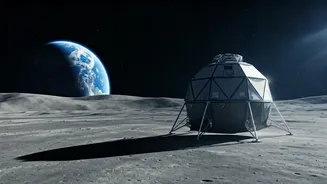The Unexpected Dangers
The pursuit of knowledge, as demonstrated by 20 notable experiments, often ventures into uncharted territory, where the potential for unexpected consequences
and ethical dilemmas looms large. Consider the infamous Tuskegee Syphilis Study, where a group of African American men with syphilis were deliberately left untreated to observe the disease's progression. This experiment, shrouded in controversy, highlighted the potential for research to exploit vulnerable populations. Or, take the Milgram experiment, designed to understand obedience to authority, where participants were instructed to administer what they believed were electric shocks to others, demonstrating the disturbing ease with which individuals can be coerced into harmful actions. Each study, regardless of its merits, reminds us of the importance of balancing scientific curiosity with ethical considerations and the welfare of human subjects.
Human Body Experiments
Some of the most chilling scientific endeavors have focused on the human body, often pushing the limits of what is considered acceptable. The Stanford Prison Experiment, a psychological study, dramatically illustrated the effects of power and authority by dividing participants into guards and prisoners. The experiment was cut short due to the disturbing psychological impact it had on the participants. Also, the Little Albert experiment, conducted on a young child, conditioned him to fear various stimuli, demonstrating the potential for psychological manipulation and the lasting effects of early experiences. These examples highlight the necessity for rigorous ethical guidelines when exploring the human psyche.
The Mind's Mysteries
Experiments that probe the human mind can be particularly disturbing. The effects of sensory deprivation, studied through methods like isolation tanks, expose the fragility of the human psyche without external stimuli. Subjects reported hallucinations and altered states of consciousness, demonstrating the critical role of sensory input in maintaining mental stability. The use of psychedelic drugs, as investigated in controlled settings, shows how easily perceptions can be manipulated, leading to both insights and potential for harm. Experiments involving the use of subliminal messages aimed to influence behavior, too, raise questions about how our minds can be unknowingly affected. These experiments continue to push the boundaries of our understanding of consciousness.
Nuclear and Chemical Testing
The Cold War era brought about a terrifying period of nuclear and chemical testing. The effects of radiation exposure on human health were studied through the testing of nuclear weapons, with devastating results. Also, experiments involving the use of chemical warfare agents, such as mustard gas, were used to understand the effects of such weapons and led to severe health implications. Moreover, the aftermath of the Chernobyl disaster, and its impact on health and the environment, serve as a stark reminder of the long-term consequences of unchecked scientific and technological advancement. These examples serve as cautionary tales about the importance of global collaboration and ethical considerations in scientific research.
Animal Studies' Controversies
Animal experimentation has also generated controversy due to the ethical concerns related to animal welfare. The experiments by Dr. W.T. Green, for example, revealed insights into surgical procedures, but also caused severe suffering to the animals involved. Similarly, the work of Harry Harlow, who studied the effects of maternal deprivation on rhesus monkeys, revealed important psychological insights, but the methods employed, such as isolating infant monkeys, were extremely distressing. These examples underscore the importance of the debate on the ethical considerations involved in animal experimentation, highlighting the need for robust ethical guidelines and humane research methods.
The Quest for Immortality
The pursuit of longevity and the quest for immortality have also resulted in peculiar and sometimes terrifying experiments. Early attempts at extending life, such as blood transfusions from young to old, were often unsuccessful and sometimes caused harm. Cryonics, the practice of preserving bodies after death, while remaining experimental, raises many questions about the future and how the current generation will shape the future. Moreover, ongoing research into genetic manipulation and stem cell technology, while having enormous potential benefits, also bring up moral considerations. These scientific undertakings highlight humanity's complex relationship with mortality and our relentless pursuit of eternal life.
The Secrets of Space
Space exploration and the scientific exploration of the cosmos have generated many experiments with the potential for unexpected consequences. The space race, for instance, involved intense experimentation to understand the effects of space on the human body. Experiments involving biological specimens, such as microorganisms and plants in extreme conditions, have been crucial for understanding the possibilities of extraterrestrial life. Moreover, the potential for planetary contamination, the unintentional transfer of Earth-based life to other planets, remains a valid concern. The experiments in space continually remind us of the importance of ethical considerations when venturing into new frontiers and the profound responsibility that comes with exploring the vast universe.

















